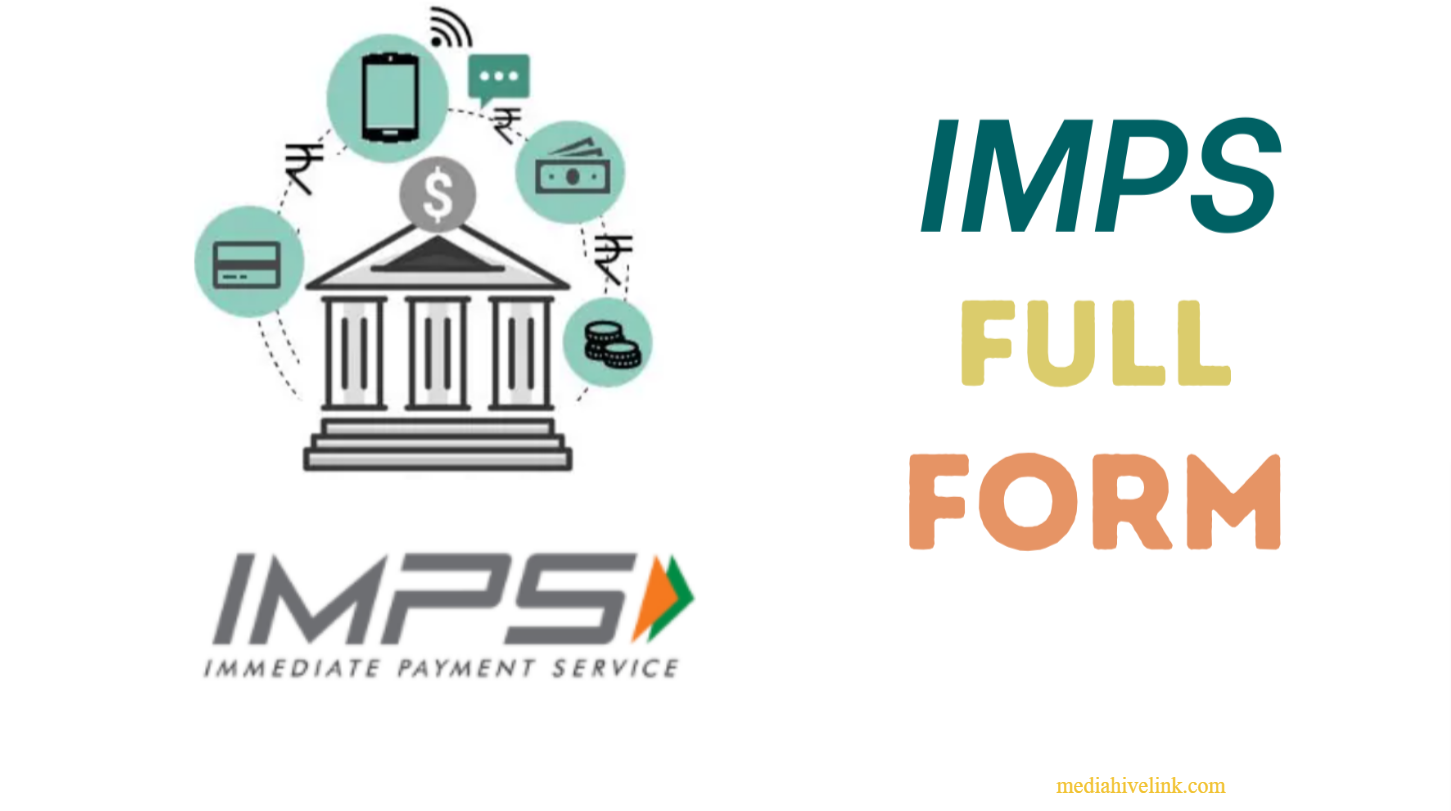IMPS stands for Immediate Payment Service, a swift real-time payment solution facilitated by the National Payments Corporation of India (NPCI), ensuring 24/7 availability.
With IMPS, users can promptly transfer funds, up to ₹2 Lakhs, at any time, including banking and national holidays. Leading banks provide IMPS services through their online platforms, and some also offer this convenient facility via SMS services.
IMPS Full Form
IMPS, or Immediate Payment Service, is an acronym for a real-time interbank electronic fund transfer service. This service enables customers to promptly transfer funds between bank accounts 24/7, including weekends and holidays. IMPS transactions can be initiated through various channels, including mobile banking, internet banking, ATMs, and bank branches. The process utilizes unique identifiers such as the Mobile Money Identifier (MMID) or the combination of Account Number and Indian Financial System Code (IFSC) to facilitate seamless fund transfers.
IMPS: Key Features and Attributes
Effortless Fund Transfer: 24/7 Availability, Even on Weekends and Holidays
Diverse Initiation Channels for Transactions
Utilization of Distinct Identifiers: Mobile Money Identifier (MMID) or Account Number and Indian Financial System Code (IFSC)
User-Friendly and Convenient IMPS Experience
Navigating IMPS: Understanding Timings and Fees
IMPS (Immediate Payment Service) offers the flexibility of usage at any time, without any specific time constraints. Nevertheless, the charges associated with IMPS transactions differ across various banks. Below, you will find a list of selected banks along with their corresponding IMPS charges.
| Banks | IMPS Charges |
|---|---|
| HDFC Bank | ₹3.50 – ₹15.00 |
| Bank of Baroda | ₹2.50 – ₹25.00 |
| ICICI Bank | ₹3.50 – ₹15.00 |
| Axis Bank | ₹2.50 – ₹10.00 |
| Punjab National Bank | ₹6.00– ₹12.00 |
| AU Small Finance Bank | ₹10.00 |
| State Bank of India | No Fees |
| Canara Bank | ₹5.00 – ₹18.00 |
| Kotak Mahindra Bank | Free of Charges |
| Union Bank of India | ₹2.00 – ₹20.00 |
| IDBI Bank | ₹3.00 – ₹10.00 |
| Standard Chartered Bank | ₹5.00 – ₹20.00 |
| Indian Bank | ₹3.00 – ₹12.00 |
Benefits of IMPS Fund Transfer
Here are some benefits of utilizing the IMPS service:
Reliable Money Transfer:
- IMPS ensures a trustworthy and dependable means of transferring money securely.
Enhanced Privacy:
- Your bank account details need not be shared, maintaining a high level of confidentiality during IMPS transactions.
Diverse Applications:
- IMPS serves multiple purposes, such as settling bills and engaging in online shopping, offering versatility in its usage.
Cost-Efficient Transactions:
- IMPS proves to be a budget-friendly option for transferring money, making it a financially prudent choice for users.
These distinctive advantages underscore the convenience and effectiveness of the IMPS service. If you have specific inquiries or require further elaboration, feel free to ask!
Drawbacks of IMPS Fund Transfer
Certainly! Here are alternative expressions for the disadvantages of using IMPS:
Transaction Charges:
- Some banks may levy fees for IMPS transactions, introducing an additional financial aspect to consider during fund transfers.
Reliance on Internet Connectivity:
- IMPS operations hinge on a stable internet or mobile network connection, potentially causing challenges in areas with connectivity issues.
Limited Bank Participation:
- Availability of IMPS services varies among banks, potentially limiting the user’s ability to engage in transactions across diverse banking platforms.
Risk of Inaccurate Details:
- Mistakenly entering recipient information poses a risk, potentially leading to funds being transferred to unintended accounts.
Domestic Transaction Scope:
- IMPS primarily facilitates domestic transactions within India, imposing a constraint on its utility for international money transfers.
Understanding these potential challenges allows users to make informed decisions when choosing IMPS as their preferred transaction method. Feel free to seek further clarification or address any specific concerns!
Possible Causes of IMPS Transaction Failures
Understanding IMPS Transfer Challenges
Before relying on the IMPS service, it’s crucial to acknowledge that not every IMPS transfer may go smoothly. After initiating a fund transfer through IMPS, it’s advisable to review your transaction history to confirm if the amount has been deducted from your account.
If you notice that the funds haven’t been debited, it’s recommended to wait for a certain period before attempting another fund transfer through the IMPS service.
What Information is Necessary for IMPS Transactions?
Essential Details required for IMPS Transactions
Conducting IMPS transactions involves providing specific information based on the chosen method:
Transactions via Mobile Banking:
- Mobile banking necessitates the use of MMIDs for both parties.
- MMID generation is contingent on having access to mobile banking.
Transactions through Net Banking:
- Details of the beneficiary are mandatory, encompassing bank specifics, IFSC code, recipient’s mobile number, recipient’s name, and MMID.
IFSC-Dependent Fund Transfer:
- The entire name of the account holder is requisite.
- Bank account number.
- IFSC code of the bank branch where the account is maintained.
MMID-Dependent Fund Transfer:
- Recipient’s mobile number.
- Recipient’s 7-digit Mobile Money Identifier (MMID).
Understanding the IMPS Reference Number
Upon the completion of an IMPS transaction and the successful authentication of the payment, a unique 12-digit number, referred to as the IMPS Reference Number, is generated and displayed on the screen. This distinctive identifier can also be found on your bank account statement, associated with the IMPS transaction ID.
Aside from IMPS, alternative methods such as RTGS or NEFT are available for transferring funds between accounts. Familiarizing yourself with the distinctions between IMPS, NEFT, and RTGS can aid in selecting the most suitable mode for your needs.











Leave a Reply
You must be logged in to post a comment.